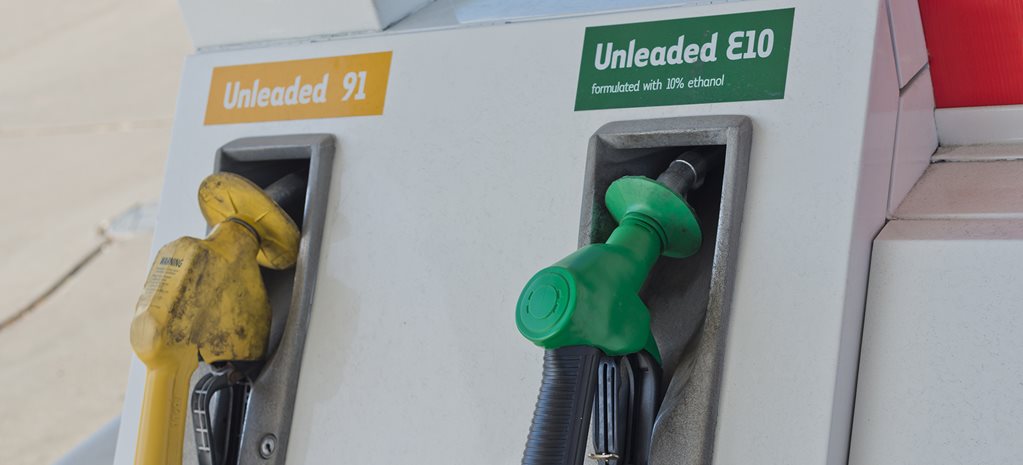This summer there’s going to be a big change on petrol forecourts. From September 2021, E10 petrol will be introduced across the UK.
The current E5 petrol is going to be replaced with E10 fuel, which contains more renewable ethanol. This change will not affect diesels, it only applies to standard (95 octane) petrol.

Here’s what you need to know.
What is E10 petrol?
E10 petrol contains up to 10% ethanol, whereas the current E5 petrol contains up to 5% ethanol.
Ethanol is alcohol-based, derived from plants via fermentation. Using renewable ethanol helps to reduce CO2 emissions produced by petrol-powered vehicles.
Current unleaded petrol isn’t carbon neutral - the refining of the fuel, and of it being burned by an internal combustion engine, results in more CO2 being emitted than absorbed.
Ethanol is partially carbon neutral. It’s derived from plants that absorb more carbon dioxide as they grew than what they’ll produce via fuel refinement and the combustion process.
Why is E10 being introduced?
The introduction of E10 should have a significant impact on CO2 emissions produced by vehicles in the UK.
The UK government has pledged to meet climate change targets. As part of this, they plan to ban the sale of new petrol and diesel-powered cars by 2030.
In the meantime, E10 is another initiative to reduce the environmental impact of the number of vehicles on our roads by reducing their carbon emissions. It’s predicted that the introduction of E10 petrol will cut transport CO2 emissions by 750,000 tonnes a year. This is the equivalent of taking 350,000 vehicles off our roads.
By increasing the amount of ethanol used in petrol, less fossil fuels are needed to produce fuel.
Is your vehicle compatible?
If your car was produced after 2011, you won’t be affected as that’s when it became mandatory for new cars to be E10 compatible.
However, over 500,000 older vehicles are estimated to be incompatible with E10 fuel. If you own a classic car, it’s unlikely you’ll be able to run it on E10 petrol as the new fuel could cause damage to components, including the fuel pump and fuel hoses.
It’s predicted that around 5% of petrol vehicles will not be compatible with E10. In these cases, owners will need to keep using E5 petrol, which will remain available in the ‘super’ grade of petrol (97+ octane).
You can check online if your vehicle is compatible
The Department for Transport has introduced an online E10 vehicle compatibility checker for motorists to check if their car, motorcycle or moped can use E10 fuel.
If the tool can’t tell you if your petrol vehicle is compatible, you should check with your vehicle’s manufacturer directly. If in doubt, continue to use E5 available in ‘super’ grade (97+ octane) petrol.
If you incorrectly fill your vehicle with E10 fuel, it won’t cause immediate harm. However, regular use could damage engine parts.
Would you like advice from a friendly local garage?
Foster & Heanes offers car servicing, maintenance and repair for all makes and models of vehicles including classic and vintage cars. We can arrange free collection and delivery if you live near our Fleet or Dogmersfield service centres.







